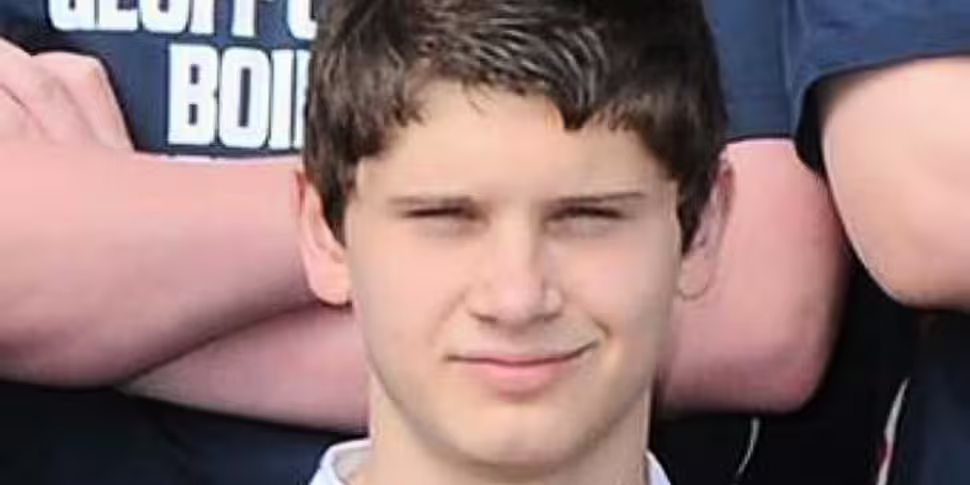Listen to the full interview via the podcast.
Ben Robinson was just trying to emulate his hero Brian O'Driscoll when he stepped onto the field for a rugby match with his school in January 2011.
Unfortunately, the match would end in tragedy for the youngster from Carrickfergus. The 14-year-old suffered concussion during the game but crucially, the symptoms were not spotted and he remained on the field.
He would suffer two more big hits to the head which led to his collapse on the field. Rushed to hospital, he was pronounced dead two days later.
In September, the coroner determined that Ben's death was due to Second Impact Syndrome - a rare condition.
His parents Karen Walton and Peter Robinson are now fighting to raise awareness about the issue of concussion in sport.
On tonight's show Ger was joined by Peter to discuss Ben's passing and how rugby and other sports can learn from the tragedy.
"Second Impact Syndrome comes about when a player remains on the field with concussion and even though it's called second impact, there doesn't have to be a second impact," Peter explained.
"Running about, just not resting...the fact that Ben played on had a very physical role to play for half an hour. [Ben] had two further big hits.
"The video clearly shows that Ben was involved in a contact one minute into the second half. He went into a tackle with his opposite centre and there was a whiplash effect. Ben collided with the centre's shoulder and Ben's head goes forward and we reckon he was out cold before he hit the ground because of the manner in which he hit the ground. He didn't put his hands out to protect himself and basically his face ploughed into the ground. He was on the ground for a minute and a half. The coach assessed him and Ben got back onto his feet and resumed the match."
He would suffer more heavy tackles and the video showed that he looked confused and told his team-mates that he could not remember the score. Concussion tests were carried out after the hits, but he was still allowed to play on.

"Obviously the video was invaluable [to the inquest] because we could see the three collisions," said Peter. "The schoolboys' statements backed up the video and filled in the gaps. They look back and realize that there were signs of concussion that they missed. They said Ben was knocked out at one stage."
Yet Carrickfergus Grammar School had contested some of the evidence which would later be proven in the video.
"The school had a barrister and they were defending some of the things that were being said. We had to show the video to say that Ben was being picked up by the coach who denied that," said Peter who is advocating for a change in the way that concussion is dealt with and the introduction of concussion training for players, coaches and officials.
"Kids are a high risk group when it comes to concussion and are more susceptible to head injuries. We talk about concussion but at the end of the day we're talking about a brain injury. If a player is told he has injured his ligaments and is going to be out for six months, that seems okay. But if someone says you have injured your brain and have to sit out for three weeks, we seem to have a problem with that. We need to err on the side of caution."
Peter wants education about concussion to be included in the curriculum of schools and believes the IRFU and IRB concussion programs need fine-tuning, citing the South African program as a leader in the area.









